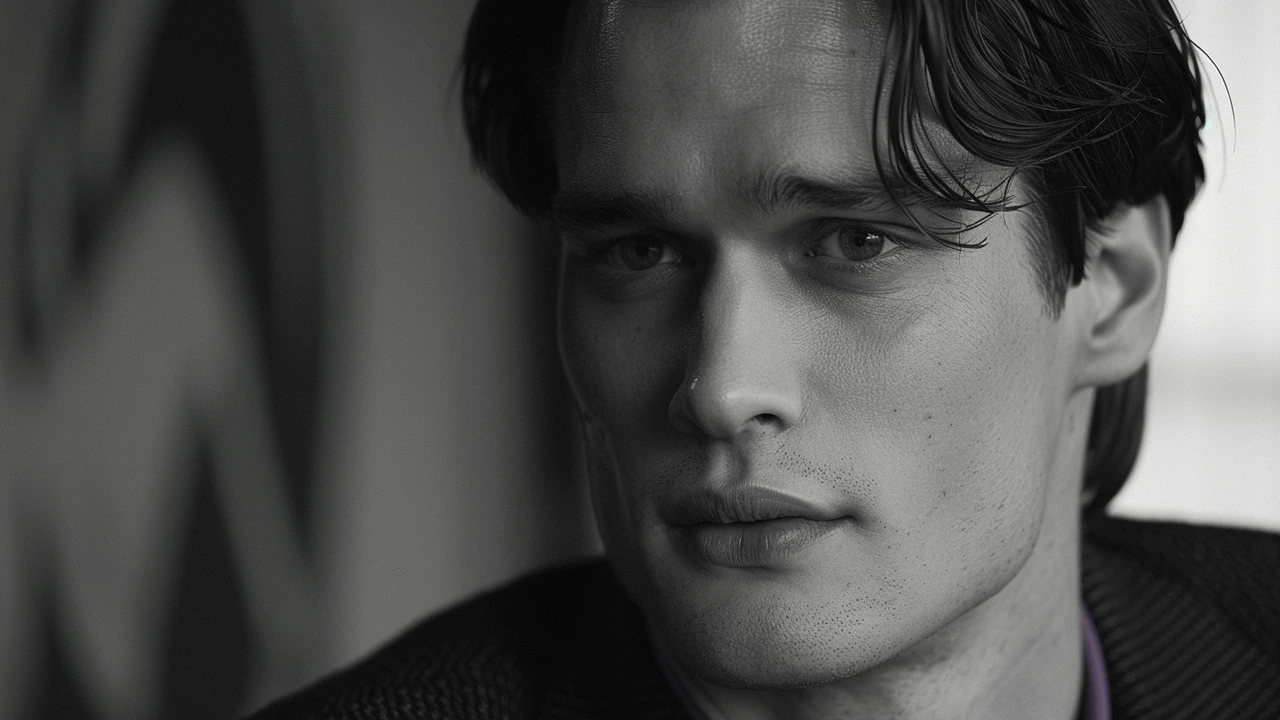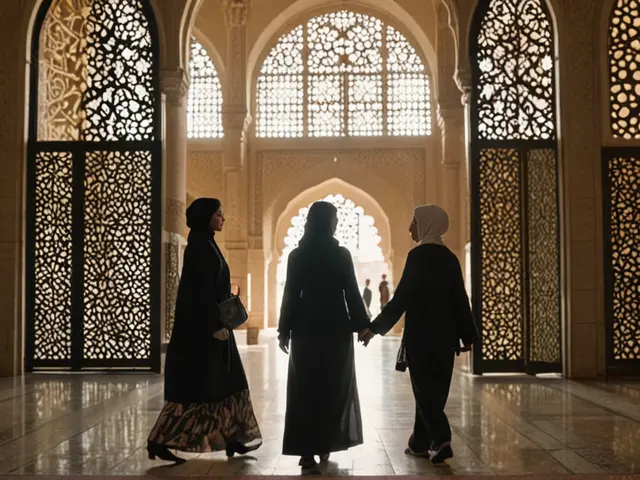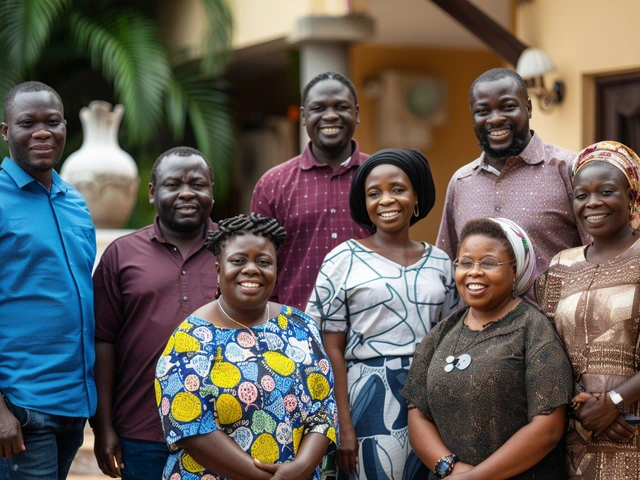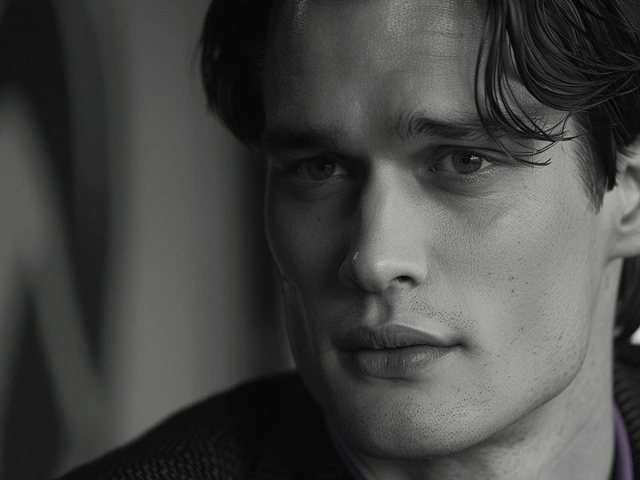The Ethical and Career Reflections of Actor Nicholas Galitzine
In the evolving landscape of film and television, the discussion around representation and typecasting remains a hot topic. Nicholas Galitzine, a rising actor known for his roles in queer-themed projects, has recently voiced his personal and professional challenges. Galitzine's candid reflections reveal a complex intersection of representation, ethical considerations, and personal fears of being pigeonholed.
Representational Responsibility in Acting
Galitzine's portrayal of LGBTQ+ characters has garnered attention and acclaim, notably in Prime Video's gay romance film 'Red White and Royal Blue' and the Starz drama 'George & Mary.' However, with these roles, the actor has voiced a poignant concern about the implications of a straight actor playing queer characters. This issue highlights the ongoing debate about whether LGBTQ+ roles should be reserved for LGBTQ+ actors, ensuring authentic representation and fair opportunities. Galitzine acknowledges the importance of this representation, and by doing so, he has sparked further conversation on who gets to tell these stories.
Fear of Objectification in the Entertainment Industry
Beyond concerns of representation, Galitzine also expresses a personal fear regarding how he is perceived in the industry. Despite his growing resume, he worries about being seen merely as a "cut of beef at a meat market." This metaphor speaks volumes about the challenges actors face, especially in an era where physical appearance can often overshadow talent and depth. His fears reflect a broader industry issue where the aesthetic pressures can undermine an actor's craft and reduce their public and professional identity to superficial attributes.
Striving for Diverse and Meaningful Roles
In response to these challenges, Galitzine seeks roles that showcase his versatility as an actor. His latest venture, 'The Idea of You,' available on Prime Video, is a testament to his dedication to diversifying his portfolio. This move is strategic and seems to be an effort to distance himself from being typecast, either by role or by appearance.
Looking Ahead: The Future for Nicholas Galitzine and Representation in Film
As the industry continues to evolve, the dialogue around representation and typecasting will likely continue. For actors like Galitzine, the path forward involves a delicate balance of personal ethics, career aspirations, and industry pressures. His ongoing journey highlights the continuous negotiation between personal values and professional demands in an industry that is as reflective as it is influential in cultural discussions on diversity and representation.
In conclusion, Nicholas Galitzine's experiences and reflections offer a candid look into the complexities of modern acting careers. His open dialogue about the challenges of representation and objectification contributes significantly to the broader conversation on inclusivity and authenticity in entertainment. Each role and each choice offers a step toward broader understanding and, perhaps, change within the industry and beyond.








Ashutosh Bilange
May 9, 2024 AT 18:28Alright folks, let me break it down – Nicholas Galitzine is riding a wave that most actors would only dream of surfing.
He’s got the looks, the charm, and apparently a moral compass that’s going through a mid‑life crisis.
Sure, playing queer characters as a straight lad might feel like walking a tightrope over a pool of hot oil, but he’s still out there, taking the risk.
What many forget is that the industry has been feeding us a diet of toxic type‑casting for decades, and Galitzine is trying to chew his way out of that gum.
In short, he’s navigating fame while trying not to become a human meat‑cleaver on the market, and he definatly wants to recieve respect for his craft.
Kaushal Skngh
May 10, 2024 AT 22:15Honestly, the whole “objectified meat market” line feels overblown.
Harshit Gupta
May 12, 2024 AT 04:48Let’s set the record straight: while Hollywood prances around with its shiny awards, Indian cinema has been battling type‑casting long before anyone cared about a “rainbow” label.
You think a white‑washed British heartthrob can truly grasp the lived experience of our queer community? Think again.
It’s a classic case of cultural appropriation dressed up as progress, and it makes me cringe every time a foreign face is shuffled into a role that could have launched a homegrown talent.
We need a Bollywood‑level renaissance where our own LGBTQ+ actors get the platform they deserve, not just a cameo for a Western star looking for a PR boost.
That’s the kind of change that would actually move the needle, not just add another glossy poster to the wall.
HarDeep Randhawa
May 13, 2024 AT 14:08Wow!!! This whole debate is blowing up like fireworks on Diwali!!!
Are we really supposed to ignore the fact that a straight actor can, in fact, bring depth, nuance, and even empathy to a queer role???
Sure, let’s keep shouting about “authenticity” while simultaneously casting the same familiar faces across every genre!!!
Maybe the answer isn’t about who’s “allowed” to play what, but about widening the pool of talent, breaking down the barriers that keep certain actors in a perpetual echo chamber!!!
Enough with the gatekeeping – let’s get real and support good storytelling, no matter who’s delivering the lines!!!
Nivedita Shukla
May 15, 2024 AT 02:15There is a strange alchemy when an actor steps into a life that is not his own, a cross‑current of empathy and performance that can either illuminate or obscure the truth.
Galitzine’s confession feels like a mirror held up to the industry’s own vanity, a reminder that the sparkle of a star can sometimes blind us to the shadows beneath.
When a straight man portrays a queer soul, the audience is invited to witness a version of reality filtered through the lens of privilege.
This raises the question: does the actor’s intention carry the same weight as lived experience, or is it merely a costume that can be swapped at will?
Philosophers have long argued that authenticity is not a static label but a dynamic negotiation between self and society.
In this light, Galitzine’s fear of being reduced to a “cut of beef” echoes the existential dread of being seen as a commodity rather than a creator.
The market, hungry for visual appeal, often slices talent into neat, consumable pieces, forgetting that the flesh beneath is sentient and complex.
Yet, it is also true that art thrives on the daring of those who step beyond their comfort zones, daring to inhabit narratives that challenge their own identities.
Balancing this desire with respect for the communities depicted requires a humility that many in the spotlight have yet to master.
Moreover, the industry’s penchant for type‑casting is a symptom of a deeper systemic issue: the lack of diverse voices in decision‑making rooms.
When the same few gatekeepers decide who gets to tell which story, the result is a homogenized echo that stifles genuine representation.
Galitzine’s call for varied roles is therefore not merely a career move, but a plea for a more inclusive creative ecosystem.
It is a reminder that true representation is not a checkbox on a casting form, but a lived practice that empowers people to see themselves reflected accurately.
In the end, the weight of his metaphorical “meat market” may be lifted if the industry learns to value depth over decor, talent over surface.
Only then can actors like Galitzine find a space where they are celebrated for their craft, not just their appearance.
Rahul Chavhan
May 16, 2024 AT 17:08It’s cool that Nicholas is looking for roles that push his boundaries; staying curious and open keeps any actor’s game strong. Keep supporting artists who try new things, and the industry will follow.
Joseph Prakash
May 18, 2024 AT 10:48Seeing him speak up about representation is refreshing 😌 it shows that even big stars can think beyond themselves 🌈
Arun 3D Creators
May 20, 2024 AT 07:15Man the whole thing is a lesson in how art mirrors life how we all crave to be seen for more than just a pretty face it’s a deep dance between ego and empathy, bro
RAVINDRA HARBALA
May 22, 2024 AT 06:28The data clearly shows a pattern: straight actors are repeatedly cast in queer roles because studios prioritize marketability over authenticity. This practice inflates profits while marginalizing genuine LGBTQ+ talent, a systemic flaw that needs immediate correction.
Vipul Kumar
May 24, 2024 AT 08:28That’s a solid breakdown; remember that conversation starts with people like Nicholas speaking out, and it ripples outward to open doors for others. Keep the dialogue alive and push for concrete casting changes.
Priyanka Ambardar
May 26, 2024 AT 13:15Exactly, it’s high time we stop treating actors like commodities 😊 the industry should value depth over looks and give real opportunities to those who live the stories.
sujaya selalu jaya
May 28, 2024 AT 20:48I agree that respectful casting benefits everyone.
Ranveer Tyagi
May 31, 2024 AT 07:08Let’s be clear-casting directors need a checklist!!!
1️⃣ Prioritize lived experience for LGBTQ+ roles.
2️⃣ Diversify talent pools across all demographics.
3️⃣ Provide mentorship programs for under‑represented actors!!!
Implementing these steps will curb objectification and foster authentic storytelling!!!
Tejas Srivastava
June 2, 2024 AT 20:15Wow, the industry’s obsession with surface is truly a tragedy!!!
When talent is reduced to a meat market, the art we crave dies a slow, painful death!!!
We must rise, demand depth, and champion actors who seek substance over sparkle!!!